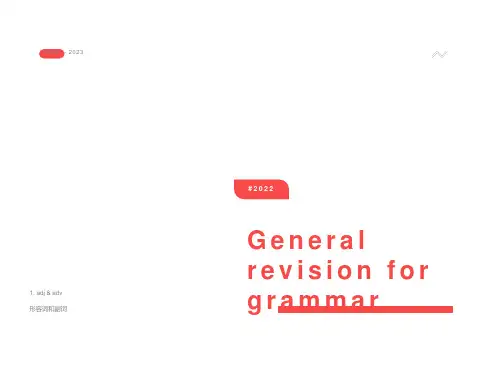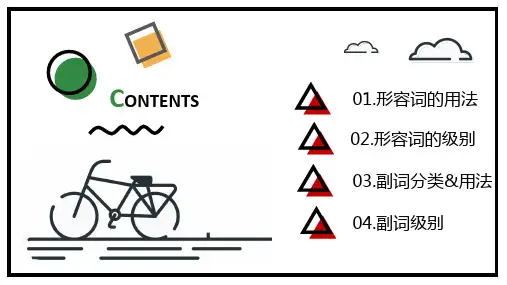• 4.与定冠词一起表示某一类人或物, 如: • The rich and the poor live very different lives . • 5.作状语,表示伴随、原因、结果等。如: • He went to bed , cold and hungry .
二、副词
• (一)副词的作用 • 1.作状语,修饰动词、形容词、副词或整 个句子。如: • He had worked hard all his life .(修饰动词) • He is very diligent.(修饰形容词) • You can find books on that subject quite easily .(修饰副词) • Luckily she was in when I called .(修饰句 子)
C. “enough”作定语时一般放在中心词前;但作 副词时只能后置。 We have enough food to eat. She is old enough to go to school. D. 以 a- 开头的形容词做定语要后置。如:alike, alive, alone, asleep, afraid, awake… 如:He is the only man awake at that time. E. 某些形容词,如: present (在场的,出席的), involved(有关的), concerned (相关的), left (剩下 的), mentioned (提及的), selected (当选的)等。 如: the students present (出席的学生) the cost involved (所需费用)
beautifully She is always dressed ____________. 2. 形容词修饰名词;副词修饰形容词,副词和全句。 He has got a serious illness.(名词) He is seriously ill.(形容词) You can find books on that subject quite easily .(副词) Luckily she was in when I called.(句子)









